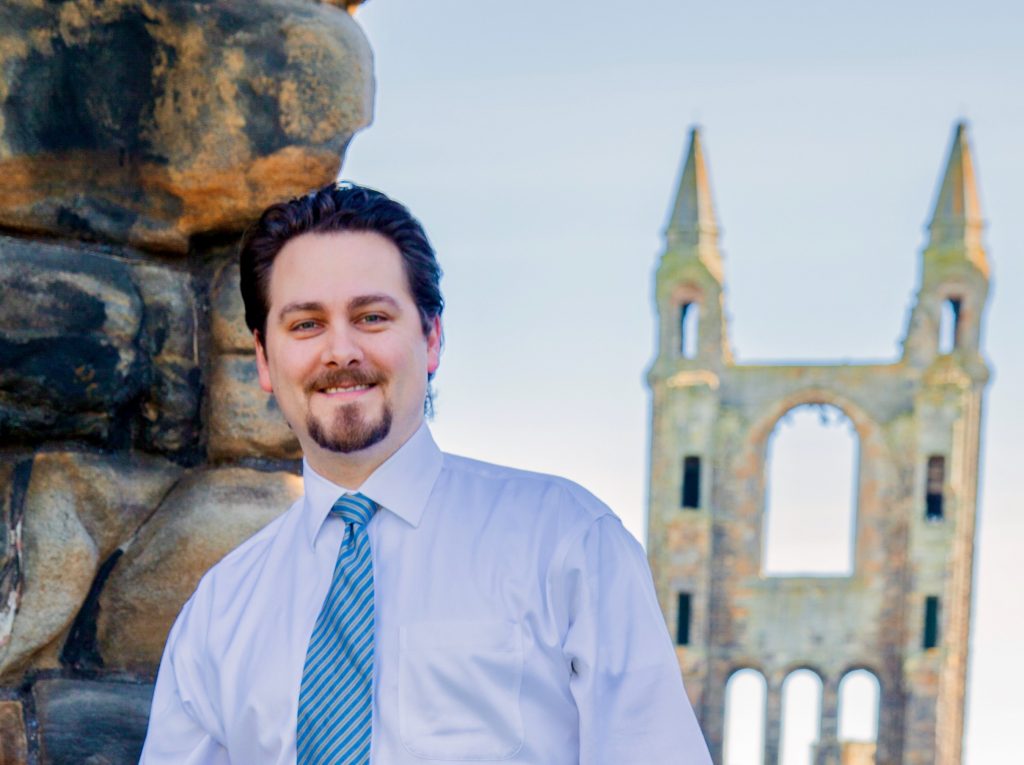Formation and Interpretation
It’s three weeks until our upcoming Formation and Interpretation: Ways of Knowing and Knowledge of God conference.
Register here (£5 to cover refreshments, free for students of St Mary’s College)
 We pause to meet one of our presenters Dr Tim Baylor. Tim, can you please tell us about your research?
We pause to meet one of our presenters Dr Tim Baylor. Tim, can you please tell us about your research?
“Much of my research focuses on Christian theologies of divine justice. I’m interested in the way that God’s justice informs our ideas about the nature of the moral life. This topic has real importance for a whole host of doctrinal questions about the character of God, the end and goal of God’s government, and the nature of God’s redeeming work. But it also has more immediately practical implications. For example, take Christian discourse in the public square. Christians routinely appeal to divine justice in support of their particular social or political visions, but they often disagree in fundamental ways about the nature of those visions. And these disagreements often stem from more basic differences in thinking about the nature of God’s justice.”
What’s your interest in “Formation and Interpretation”?
“Though my research focuses on the nature of God’s justice, one of the questions that interests me is how our moral formation actually shapes both our view God and the world. Scripture emphasises that there are some truths that we can understand only by faith and love. But if this is true, then it raises some important questions about how a sinner, a person whose love is disordered by sin, can learn to discern what is right, true, and good. This is particularly important when it comes to forming our beliefs about of God. To what degree can sinners (even redeemed sinners) have true knowledge of God, rather than simply an idol of their own making? One of the ways that the church has sought to cultivate the moral dispositions necessary for knowing God is by the imitation of Christ, and by the related discipline of meditation on the vanity of the world, sometimes referred to as the ‘contemptus mundi’ tradition. My paper will examine the reception of this spiritual tradition within a strand of Protestant practical theology. I think this will illustrate the complex relationship between Christian spiritual practice and moral reasoning. And hopefully, it will shed some light on a familiar problem, namely, the proper nature of and conditions for right moral reasoning.”
St Andrews is a beautiful place to visit anyway but why should people come and listen to you on this topic?
“Spiritual and moral formation is one of those topics where the common interest between the academy and the church is most obvious. Pastors and church leaders labour in the ministry of the Word and Sacrament in order to form the church so that it might better inhabit the gospel and offer a clearer witness to the love and faithfulness of God. And spiritual practice often grows cold and ineffective where it is not critically examined. On the other hand, in order to remain true to its subject matter, academic theology needs to be reflective about its own practices. In particular, it needs to consider whether its methods are capable of cultivating the kind of faith and love that are necessary to know God. In that respect, I think a conference on the relationship between personal formation and theological practice addresses not only a topic of considerable academic interest, but a deeply ecclesial interest as well.”
See here for details of other speakers.
Register online and direct inquiries to Rebekah Earnshaw [email protected]